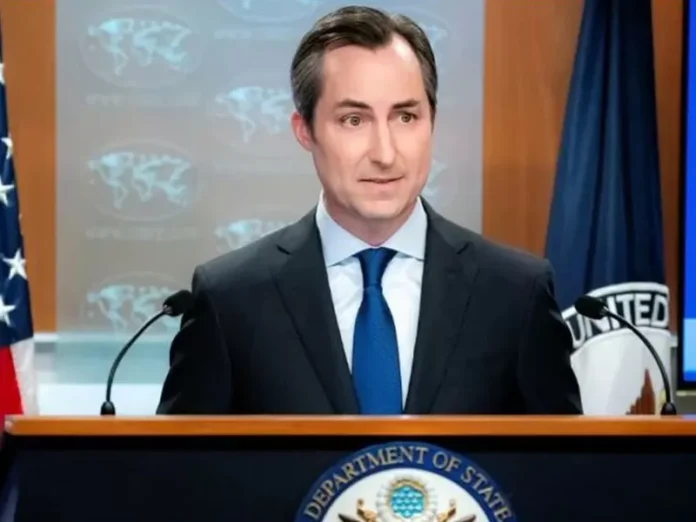The United States condemns the Georgian parliament’s decision to override the president’s veto on the «Transparency of Foreign Influence» law. This was stated by US State Department spokesperson Matthew Miller on May 28th during a briefing, the transcript of which was published on the foreign ministry’s website.
The law, which was passed by the Georgian parliament in March, requires NGOs that receive foreign funding to disclose their sources of funding and the purpose of the funds. It also imposes fines and potential criminal charges for non-compliance.
In his statement, Miller expressed concern that the law could be used to target and intimidate NGOs that are critical of the government. He also noted that the law could have a chilling effect on the work of civil society organizations and undermine the country’s democratic progress.
The United States has a long-standing partnership with Georgia and has been a strong supporter of its democratic development. We believe that a vibrant civil society is crucial for a healthy democracy and that NGOs play a crucial role in promoting transparency and accountability in government.
The US government has consistently urged the Georgian government to engage in meaningful dialogue with civil society and to ensure that any legislation related to NGOs is in line with international standards and best practices. We have also expressed our concerns about the potential impact of this law on the country’s democratic institutions.
Furthermore, the US government has provided significant support to civil society organizations in Georgia through various programs and initiatives. This includes funding for projects that promote transparency and good governance, as well as training and capacity-building for NGOs.
We are disappointed that the Georgian parliament has chosen to ignore the concerns raised by the US and other international partners. By overriding the president’s veto, they have effectively silenced the voices of NGOs and jeopardized the country’s democratic progress.
It is important for the Georgian government to understand that a strong and independent civil society is not a threat, but rather an essential component of a healthy democracy. NGOs provide valuable insights and perspectives that can help improve governance and promote accountability.
We call on the Georgian government to reconsider this law and to engage in meaningful dialogue with civil society to address any legitimate concerns. We also urge them to uphold their commitment to democratic principles and to ensure that the rights and freedoms of all citizens, including those of NGOs, are protected.
In conclusion, the United States remains committed to supporting Georgia’s democratic development and will continue to advocate for the protection of civil society and the promotion of transparency and accountability in government. We hope that the Georgian government will take our concerns into consideration and work towards creating an environment where civil society can thrive and contribute to the country’s progress.

